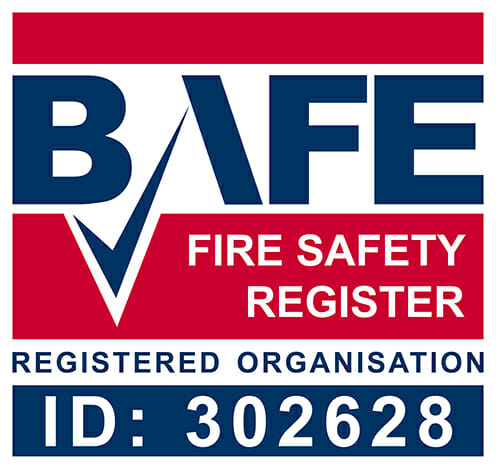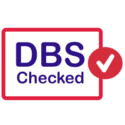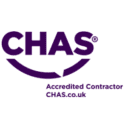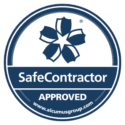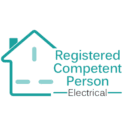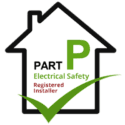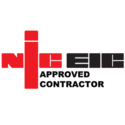EICR CERTIFICATE
Electrical Installation Condition Report – This is the process of testing and inspection your electrical distribution systems, wiring and accessories to ensure it’s full safety and compliance with the current regulations.
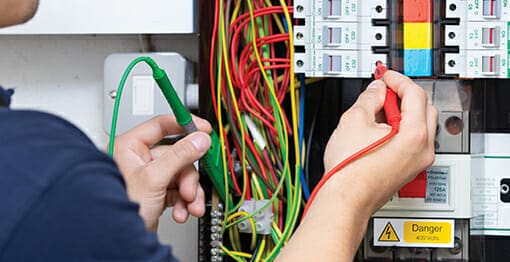
EICR Certificate
Discovering the ins and outs of Electrical Installation Condition Reports (EICR) is crucial for ensuring the safety and compliance of your electrical installations. Here’s what you need to know:
Ensure Electrical Safety with EICR Certification
Electrical safety is crucial for preventing fire and electrocution hazards. Electricians rely on the Electrical Installation Condition Report (EICR) to ensure compliance and safety in installations. An EICR is a thorough assessment of electrical systems, identifying any defects that could compromise the integrity of an installation. It is a critical step in certifying that an environment is safe for occupants. Certification demonstrates due diligence.
Unpacking EICR Certification
The Electrical Installation Condition Report (EICR) ensures electrical installations are safe. It identifies hidden hazards and deviations from standards through meticulous assessment and testing. EICR certification demonstrates compliance with health and safety regulations. Regular EICRs are recommended to maintain electrical safety standards. Failing to conduct an EICR can have serious legal and safety implications. Proactive electrical safety management is essential.
Failing to undertake an EICR when due can have dire consequences, exposing occupants to potential dangers
and proprietors to significant legal implications. Proactivity in electrical safety management is both a moral and
legal imperative.
EICR Explained
Ane Electrical Installation Condition Report (EICR) is an authoritative dossier that epitomises the integrity of
an electrical system within any given property, commercial or domestic. This detailed investigation involves
systematised inspections and comprehensive testing to guarantee the installation’s fidelity to current safety
standards, ensuring that any potential hazards are identified and addressed with immediacy. Such evaluations
necessitate a high calibre of technical acumen and are conducted by consummate professionals holding the requisite
qualifications.
These specialists meticulously analyse the safety of electrical circuits and equipment,
safeguarding against the aforementioned hazards that could imperil occupants and property alike.
Identifying Electrical Hazards
Superintending electrical safety entails recognising risks before they morph into emergencies. Hazards can manifest subtly, through outdated wiring or compromised insulation. Only through diligent surveying can such perils be uncovered and rectified.
It is within the complex mesh of an electrical system that dangers often lurk, shrouded in the normalcy of everyday use. Circuitry issues might present as intermittent flickering—a harbinger of potential peril—demanding thorough examination to avert electrical mishaps.
Over 20,000 fires each year are attributed to electrical malfunctions in the UK alone.
Pinpointing these threats requires a stringent assessment against regulatory benchmarks. Anomalies such as overheating sockets, persistent tripping of circuit breakers, or ungrounded outlets signal deeper concerns. A comprehensive EICR confronts these issues, ensuring the minimisation and elimination of such hazards.
Legal Requirements and Standards
Electrical safety within the United Kingdom is governed by stringent legal requirements embedded in legislation such as the Electricity at Work Regulations 1989. These statutes mandate that the electrical systems at workplaces must be maintained to prevent danger. In the domestic sphere, though not explicitly required by law, the Landlord and Tenant Act 1985 implies electrical safety responsibilities, prompting landlords to seek EICR certification. Compliance is also judged against the British Standard BS 7671 – the Wiring Regulations – providing a benchmark for assessing the integrity and safety of electrical installations.
Failure to uphold these standards can result in severe legal consequences, underscoring the imperative for EICR certification to evidence due diligence and adherence to safety norms.
Frequency of Inspections
The regularity of Electrical Installation Condition Reports (EICR) is determined by various factors, such as the type of installation, its use, and the environmental conditions it is subject to. Guidance on frequencies is provided in BS 7671.
- Commercial environments generally require more frequent inspections, typically every five years, to ensure continual safety due to higher usage rates.
- Residential properties are advised to undergo inspection at least every ten years, or upon change of occupancy. In rented accommodations, a five-year interval or change of tenancy is highly recommended to safeguard tenants.
- High risk locations like industrial plants or buildings open to the public may demand EICR assessments even more regularly, perhaps as often as annually. These short intervals are crucial for identifying potential electrical risks that could lead to serious incidents, maintaining the safety of all stakeholders, and preserving compliance with legal and insurance obligations. In certain cases, such as those involving swimming pools or agricultural establishments, guidance suggests a period of “one year” for re-examination is prudent.
EICR in Commercial Settings
In the realm of commerce, the Electrical Installation Condition Report (EICR) is an indispensable tool for certifying that electrical systems are not only safe but capable of handling the demands of a fast-paced commercial environment. Retail outlets, office buildings, warehouses, and educational institutions are among those requiring regular EICR certification to mitigate hazards and affirm compliance with the Electricity at Work Regulations 1989.
Commercial entities must regard EICR evaluations as a critical part of their operational risk management strategy. Failure to adhere to prescribed EICR intervals can lead to legal ramifications, endanger employees and clients, and may invalidate insurance policies, hence punctuality and thoroughness in obtaining these certifications are imperative.
Compliance for Businesses
Ensuring electrical safety within businesses is not merely a precaution; it’s a legal obligation.
Since 1989, the Electricity at Work Regulations have imposed a duty of care on employers to maintain electrical systems safely. This framework includes obtaining EICR certifications, which evaluate the integrity and efficiency of a business’s electrical installations, thereby reducing risks and ensuring safe operations.
Furthermore, achieving compliance through EICR is not a one-off task but a recurring mandate. Failing to periodically reassess and certify electrical systems could be construed as dereliction of duty, jeopardising not only safety but also the legal standing of a business.
Adhering to the EICR process is also vital for the protection of a company’s assets and continuity planning. It provides a bulwark against potential electrical failures which could disrupt business operations or precipitate catastrophic events, thus maintaining the outfit’s resilience.
In conclusion, EICR certification is the cornerstone of electrical safety compliance for businesses, ensuring the wellbeing of both people and processes.
Mitigating Workplace Risks
Proactively managing electrical hazards is imperative to workplace safety. Rigorous adherence to the EICR regulations is pivotal in this endeavour.
By establishing a systematic approach to electrical inspections, businesses forge a culture of safety. This is not merely about compliance but fostering an environment where electrical safety is deeply ingrained in the organisational ethos.
Indeed, routine EICR assessments provide invaluable foresight into potential electrical risks. This allows for the correction of defects before they escalate into serious safety concerns or operational disruptions.
Moreover, a consistent EICR schedule reinforces the reliability of electrical systems, ensuring that periodic assessments catch discrepancies and that maintenance needs are anticipated and addressed proficiently.
In essence, rigorous EICR compliance is the linchpin of any robust electrical safety strategy. It serves as a proactive measure to avert workplace accidents and uphold safety standards.
EICR for Home Safety
The Electrical Installation Condition Report (EICR) is a fundamental document that embodies the integrity of a home’s electrical installation. For homeowners, it acts as a crucial safeguard, identifying latent electrical issues that, if left unchecked, could pose significant risks. It verifies that the electrics comply with the prevailing standards for safety and operation. Securing an EICR is more than a statutory exercise; it is a profound responsibility to ensure the wellbeing of the occupants and the longevity of the property’s electrical infrastructure. A thorough EICR reveals any deterioration or deviation from the safety norms and offers a framework for timely intervention, thus ensuring home safety is not compromised.
Retaining Property Value
Maintaining the safety and integrity of electrical installations is pivotal in preserving property value.
- Evidence of Compliance: An EICR serves as documentary proof of adherence to current electrical safety standards.
- Attractiveness to Buyers: Properties with up-to-date EICR certifications are often more appealing to potential purchasers.
- Insurance Prerequisites: Possessing a valid EICR can be essential for securing property insurance at competitive rates.
- Preventive Maintenance: The EICR process identifies issues before they become costly repairs, protecting the investment in the property.
A validated EICR certificate reassures that a property is safe and well-maintained.
Proactive electrical maintenance underlined by EICR certification is essential to sustain and potentially enhance a property’s market value.
Choosing a Qualified Inspector
Selecting the appropriate individual for an Electrical Installation Condition Report (EICR) is crucial to obtaining reliable results. It is essential to engage a certified electrician, preferably one who is a member of a recognised industry body such as the Electrical Safety Council or the Institute of Engineering and Technology (IET). This professional should have demonstrable expertise in inspection and testing, and a thorough understanding of the current wiring regulations, known as the BS 7671. Moreover, the inspector must possess public liability insurance, ensuring accountability and protection for the property owner. Only a suitably qualified and experienced practitioner will possess the requisite knowledge and skill to accurately assess the condition of an electrical installation and provide a legitimate EICR certificate.
Credentials to Look For
Selecting a credentialed inspector is the cornerstone in guaranteeing a comprehensive and authoritative EICR.
- Affiliation with Reputable Bodies: Look for memberships with esteemed organisations such as the Electrical Safety Register or the Institution of Engineering and Technology (IET) and NIC EIC.
- BS 7671 Expertise: The inspector should demonstrate a profound understanding of and compliance with the current wiring regulations – BS 7671.
- Public Liability Insurance: Confirm that the electrician has adequate insurance coverage to protect against any potential damages.
- Continual Professional Development: Seek evidence of ongoing learning to maintain cutting-edge knowledge in the rapidly evolving electrical safety sector. Credentials form an integral part of an inspector’s professional toolkit.
Attention to these credentials will mitigate risks and endorse the reliability of the electrical safety assessment.
Understanding the Inspection Process
The EICR inspection is a systematic examination, mandatory to ensure ongoing electrical safety and compliance. It scrutinises the integrity of a property’s electrical installations.
During the inspection process, qualified inspectors examine the electrical system against BS 7671 regulations, identifying any discrepancies, potential hazards, or non-compliances. This assessment covers several components including wiring, sockets, and protective devices.
They assess the condition of equipment against the ‘Electricity at Work Regulations 1989’, documenting their findings to produce a detailed report. This involves both visual inspections and testing using specialised equipment to check for issues that aren’t apparent to the naked eye.
Post-inspection, the accredited professional will compile a report categorised by codes: C1, C2, C3, and FI, delineating the urgency and nature of any discovered issues. Remedial works can be planned according to these findings to rectify any safety concerns.
Upon satisfactory remediation, the EICR certification affirms the electrical network conforms to statutory requirements, guaranteeing safety for occupants and peace of mind for stakeholders.
FREE QUOTATION
OTHER ELECTRICAL SERVICES
DOWNLOADS
WHAT DOES AN ELECTRICAL INSPECTION EICR CERTIFICATE COST
• Fixed and straight forward prices £8 – £22 per circuit
For Fixed Electrical Inspections (EICR), our prices are fixed and straight forward – we charge between £8 – £22 per circuit.
• No call out charges to travel to your premises
At PTS Compliance we do not charge call-out fees to travel to your premises to undertake work, however, parking fees may be charged if on-site parking at your premises is unavailable.
• Out of hours testing/servicing options available
The engineers will work around your business requirements and will even work throughout the night if that suits you. For a bespoke quotation for overnight work, simply call us today to discuss your requirements with one of our Account Managers.
• Commercial and industrial testing from £199
We charge a minimum invoice of £199 for commercial and industrial testing.
• Domestic & HMO testing charged at these fixed prices:
• 1 bedroom dwellings – £149.00 (max 10 circuits *)
• 2 – 3 bedroom dwellings – £179.00 (max 15 circuits *)
• 4 – 7 bedroom dwellings – £229.00 (max 20 circuits *)
* Additional circuits will be charged at £12 per circuit thereafter
*Additional consumer boards within property are charged at £39
• Express or multiple certification options available
Require an urgent certificate? we offer a same day certification option for an additional £10 charge, and are also able to offer multiple certificates or asset registers at extra charge (price on request).
BOOK TODAY
To book an EICR or to discuss your requirements further give us a call on 0800 644 5400, email us at [email protected] or use our contact form.
